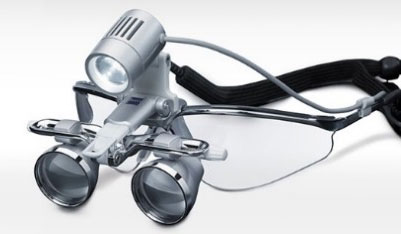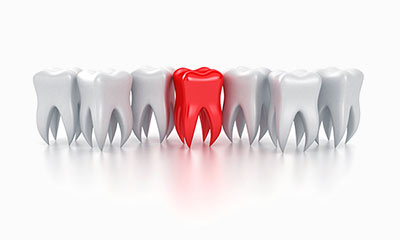ENDODONTICS [ROOT CANAL TREATMENT]
Dr. Karthik Mohan has a Master’s degree in Endodontics (Root Canal fillings) and has performed over hundreds of successful root canals, so you know you’re in the best of hands.
With Dr. Mohan’s proficiency in Root Canal therapy, clinically known as endodontics, he has been able to develop a proficient and methodical approach to care, which means patients are much less likely to have any recurring infection and need another root canal. Dr. Mohan knows getting it right the first time is vital. His qualifications and knowledge in endodontic treatment is thoroughly proven by the successful and comfortable root canal procedures he has performed over the years. So you can be assured you are in good hands when you come to see us for your root canal treatment.
The Root Canal Treatment Process
Your dentist will examine and x-ray the tooth, and then a local anaesthetic will be administered. After the tooth is numb, your dentist will place a small protective sheet called a “dental dam” over the area to isolate the tooth and keep it clean and free of saliva during the procedure.
An opening is made in the crown of the tooth and small filing instruments are used to remove decay and the diseased part of the tooth, clean out infected debris, disinfect the inside, and then fill it with a sterile filling material. Finding the canals, locating fractures, and excavating decay are the most crucial parts to the success of a root canal treatment and this is exponentially easier when your dentist uses magnification loupes to increase the success of treatments.
After the space is cleaned and shaped, your dentist fills the root canals with a sterile filling material. In most cases, a temporary filling is placed to close the opening. The temporary filling will be removed by your dentist before the tooth is restored.
In most instances, you will require a crown or other restoration placed on the tooth to protect and restore it to full function. The unrestored tooth is susceptible to fracture, so you should see your dentist for a full restoration as soon as possible. Most root canals can be completed in a single visit, complex cases require a second appointment. After treatment, your tooth may still be sensitive, but this will subside as the inflammation diminishes and the tooth has healed. You will be given care instructions after each appointment. Good oral hygiene practices and regular dental visits will aid in the life of your root canal treatment.

INCREASING THE SUCCESS OF ROOT CANAL TREATMENT AT WELLSFORD DENTAL
At Wellsford Dental, Root canal treatment is carried out under magnification with precise LED lighting which provides enhanced visualization of root fractures, helps locate additional canals and is invaluable in assisting Dr. Mohan to perform the highly technical aspects of root canal treatment. We utilise the Carl Zeiss surgical loupes to gain up to 5.5 times magnification to help boost the success rate of endodontic treatment. This improves the speed and accuracy of diagnosis and enables unsurpassed visualisation of the inside of root canals, helping to boost the success rate of treatment as well as other complex procedures such as implants.
In addition, we use state-of-the-art electronic apex locators to aid in determining the precise location of the root end, which minimizes the number of X-rays required during treatment.

WHY IS A ROOT CANAL BETTER THAN AN EXTRACTION?
Saving a natural tooth through endodontic treatment should be your first choice. The single most important benefit of root canal therapy is that you keep your tooth. Extraction may lead to other dental problems. For instance, drifting of teeth, bite problems, TMJ discomfort, and the need to treat adjacent teeth that do not otherwise need dental treatment in order to restore the missing tooth.
Replacing a tooth that has been extracted with an artificial tooth may require a dental bridge or an implant. Consequently, the real alternative to a root canal treatment is a tooth extraction followed by replacing the lost tooth with a dental bridge, implant, or a removable partial denture (all of which are much more expensive than a root canal). If the patient has the choice, it is always best to keep their original teeth. Endodontic treatment has a well-established success rate, and treated teeth can be maintained for years after the initial treatment. In the debate over whether a root canal or tooth extraction is the best choice, the winner seems clear – root canals are best. Modern techniques and effective anaesthesia make root canal treatment virtually painless. We also offer very competitive pricing for our root canal treatments with no shortcuts taken whatsoever. So don’t put it off anymore.

TYPICAL INDICATIONS FOR ROOT CANAL THERAPY
Inflamed Teeth
A damaged tooth that has inflammation of the pulp (nerve) can be acutely painful for the patient and can only improve with professional treatment.
- How we can help
Often, the patient is distressed and in considerable pain. By ensuring a prompt response from our dentist, we can relieve the stress for you. - What we do
Treatment is geared towards removal of the inflamed tissue, full preparation of the canal systems and full obturation (blocking up). This process, combined with a good crown or filling, ensures that bacteria are prevented from multiplying in the canal spaces. Prognosis is usually very good.
Infected Teeth
The situation can be worse than the above if the nerve or a blood vessel has disintegrated and bacteria have colonised the root canal system. This can lead to the formation of an abscess, with the bacteria sending toxins right into the jaw bone.
- How we can help
With the use of the most modern equipment, magnification loupes, nickel titanium files and irrigant systems, we can make sure the canals are as clean as possible. We then seal them with a sterile material to ensure a good seal. - What we do
Treatment is more demanding where infection is present, as it then involves cleaning all bacteria from the contaminated root canal system. Canals are very tricky complex, three-dimensional spaces where absolute sterility is sometimes hard to achieve, so the aim of sealing the canals is to trap any remaining bacteria and prevent any nutrients getting to them so that the bacteria will no longer be viable.

QUALITY ASSURANCE
We have high success rates for root canal treatments at Wellsford Dental. We are proud to offer our training and experience in assessing and treating compromised teeth that need root canal treatment with the help of advanced technology, such as magnifying Carl Zeiss loupes and digital imaging, making root canals virtually painless and helping you to save your natural teeth.
In special cases, some root canal therapy treatment may be referred on to specialists if required depending on the complexity and positioning of the canals, so you can be assured that when specialist care is warranted you will be referred on to specialist endodontists with no delay.
If you are in looking for a dentist for root canals in Mangawhai, Warkworth, Wellsford, Matakana, Kaiwaka offering competitive prices for root canal treatments, you have come to the right place. We offer high quality and affordable pricing for our treatments. We can help!!

CONTACT US
When you visit us at Wellsford Dental, we can determine if root canal treatment is right for you. We will take time to fully explain your options and answer any questions so you can make an informed decision regarding your treatment. Here, we go above and beyond to ensure that you enjoy your visit to our office and that you have a positive dental experience. You will be greeted warmly with a smile and to make your experience as comfortable as possible we offer free Wi-Fi, TV, movies, music and magazines.
Any concerns regarding your anxiety towards dental treatment is taken very seriously by our dentists who will provide options and will discuss your concerns in detail with you, ensuring that you have a plan for treatment that is right for your specific needs.
If you are looking for a dentist for affordable root canal treatments in Wellsford, Matakana, Mangawhai, Warkworth, Kaiwaka and surrounding areas, you have come to the right place. We are experts at looking after you for all your dental needs.
Contact us today for an appointment.
ROOT CANAL FAQs
This is a procedure that removes infection in the tooth as well as any other damage that might be present. It’s a procedure that is typically done if there is bacteria that has been introduced in the nerve of the tooth, resulting in an infected tooth or an inflamed tooth.
There are several causes that may lead to a root canal. They include:
- A deep cavity
- A cracked tooth
- A broken tooth
- Repeated dental procedures to the same tooth
- Severe injury to the tooth (even if it can’t be seen with the naked eye
There are times when the tooth should be pulled, but if there is enough of the tooth left to save, then a root canal would be the best solution. It is done when the infection has reached the pulp of the tooth. The single most important benefit of root canal therapy is that you keep your tooth. Extraction may lead to other dental problems. For instance, drifting of teeth, bite problems, TMJ discomfort, and the need to treat adjacent teeth that do not otherwise need dental treatment in order to restore the missing tooth.
Most patients deal with symptoms for days if not weeks before seeking treatment. They can’t chew on a particular tooth or on that side of their mouth, they can’t sleep at night, and they need to avoid cold foods and drinks. If root canal therapy is warranted, analgesics or pain relievers and perhaps antibiotics will be prescribed depending on the status of the remaining pulp and the presence or absence of swelling. So patients can be sore after treatment but the medications prescribed do aid in their return to normalcy.
If you experience pain from the tooth, sensitivity to hot or cold foods and any tenderness and swelling, then it might be wise to have a consultation for a root canal.
The dentist will numb the tooth and the gum around the tooth. The part of the tooth with the decay is removed, and an access point will be obtained to the pulp. The canals of the tooth are then cleaned and filled with a suitable material. Refer to the Root Canal process above.
After the procedure, you might experience some numbness for the rest of the day. You should eat soft foods on the unaffected side until the numbness goes away.
Each tooth has a different number of canals. The front teeth have fewer canals than the back teeth, making the process longer if the back teeth require a root canal. Finding the canals and excavating decay are the most crucial parts to the success of a root canal treatment and this is hugely dependant on the skills and experience of the dentist. It gets exponentially easier when your dentist uses magnification loupes to increase the success of treatments.
This will depend on the severity of the infection. If there is minimal damage, then you will only have to go one time. However, if there is a large amount of infection in the tooth, then a second visit may be needed.
The process takes about an hour to complete. You should plan to stay in the office for about an hour and a half to make sure the tooth has set properly. After treatment, your tooth may still be sensitive, but this will subside as the inflammation diminishes and the tooth has healed. You will be given care instructions after each appointment. Good oral hygiene practices and regular dental visits will aid in the life of your root canal treatment.
You can have the tooth extracted if you don’t want to have the root canal done. The single most important benefit of root canal therapy is that you keep your tooth. Extraction may lead to other dental problems. For instance, drifting of teeth, bite problems, TMJ discomfort, and the need to treat adjacent teeth that do not otherwise need dental treatment in order to restore the missing tooth. Keeping your original teeth should always be your main objective.
With proper restoration and care endodontically treated teeth can last as long as any other tooth. There are many factors that determine the long-term survival of a root filled tooth including, but not limited to, the condition of the tooth before treatment, the type of tooth restoration following the treatment, the way teeth bite together and habits such as grinding or clenching teeth. Good oral hygiene, avoidance of a high sugar diet and periodic dental check-ups facilitate the long term survival of endodontically treated teeth.
Because the infection is so deep in the tooth, antibiotics won’t work. You might have some relief from the infection and pain, but it will only be a cover for the deeper problem. You will find that the pain will continue to worsen until the root of the problem is fixed. An untreated infection inside a tooth will only worsen over time; the pulp cannot heal itself. Without treatment, you may eventually lose the tooth, and require a bridge or other costly restoration. Protect your teeth by getting treatment as soon as you learn that you need it.
When you lose your teeth, you gradually lose the bone that supported them. As this bone disappears, problems with other teeth may occur. Such problems may include pain, mobility, and lack of retention for prosthetics, sharp painful ridges, mobile gum tissue and sore spots.
The cost of root canal procedure can vary depending on several factors. The front teeth are usually easier to treat and therefore treatment may be less expensive than treatment of back teeth. The factors that determine the cost of the procedure are the difficulty of the treatment, complexity of procedure, time required for the treatment and the materials used for the procedure. Generally, endodontic treatment is much less expensive than extraction and replacement of teeth with a bridge or an implant.
Yes, we absolutely have finance options available. For more information on interest-free payment plans, please click here.










